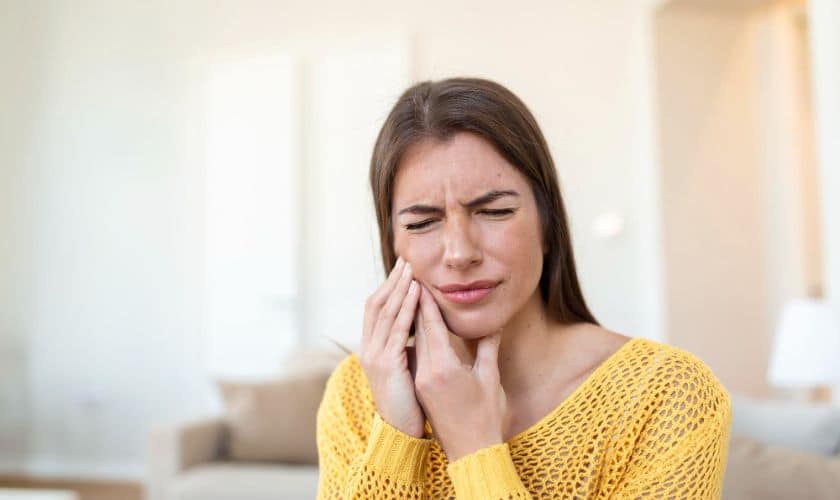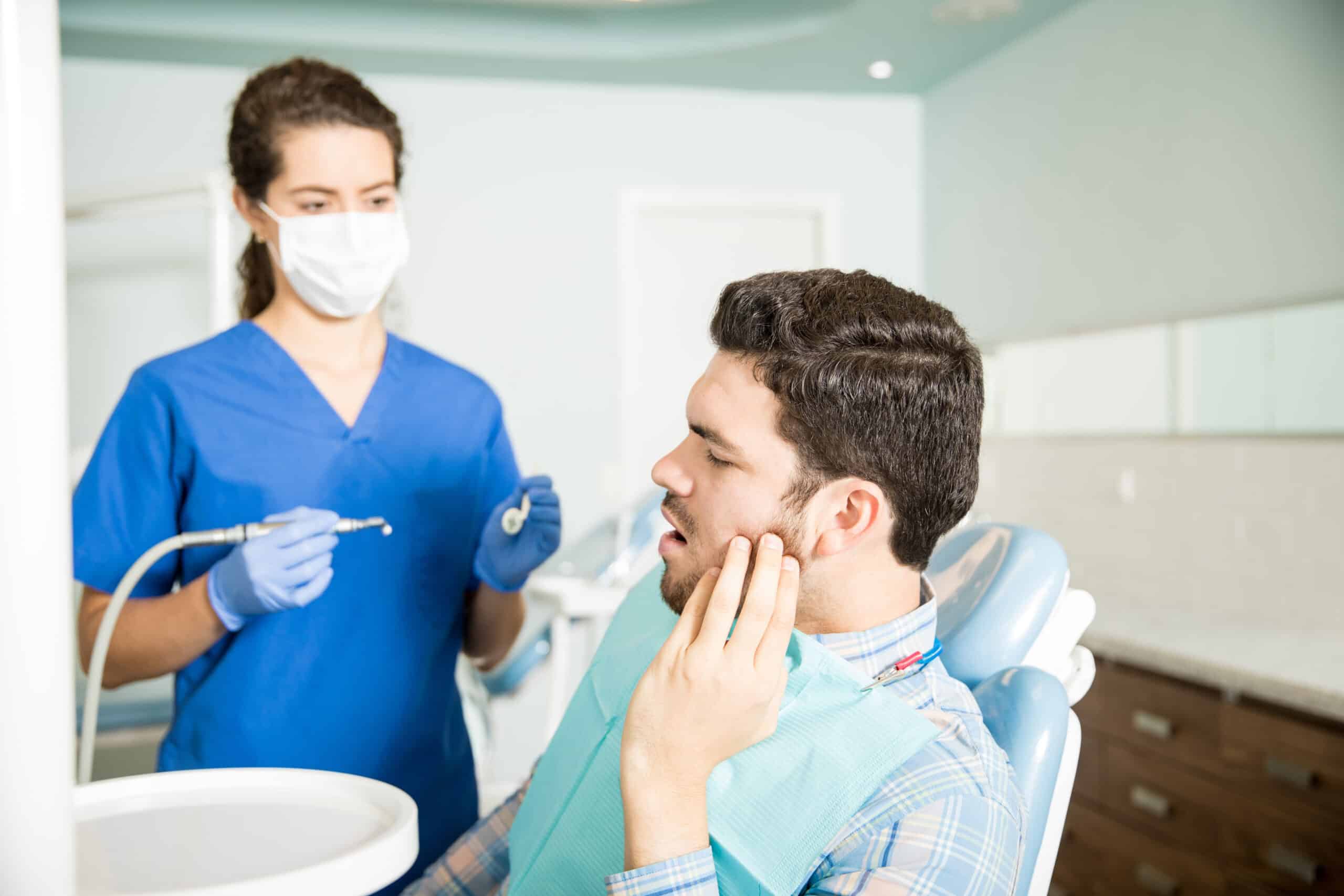
Common Dental Emergencies and How to Handle Them in Mountain Home, AR
Dental emergencies can strike at any moment, causing pain, discomfort, and anxiety. For residents of Mountain Home, AR, knowing how to address these emergencies promptly is essential. This comprehensive guide aims to provide valuable insights into common dental emergencies and how to handle them effectively in the Mountain Home area. From sudden toothaches to broken teeth or lost fillings, we will explore the steps you can take to alleviate pain and minimize potential damage before seeking professional dental care. By equipping yourself with the knowledge contained within these pages, you’ll be better prepared to face dental emergencies with confidence and composure.
Sudden Toothaches
1. Causes of Sudden Toothaches: Toothaches can result from various causes, including dental decay, a cracked tooth, gum infections, or even sinus issues. Identifying the underlying cause is essential for effective pain management and treatment.
2. Home Remedies for Immediate Relief: While awaiting dental care, you can try home remedies such as rinsing your mouth with warm saltwater, taking over-the-counter pain relievers as directed, and applying a cold compress to the affected area. These measures can provide temporary relief from toothache pain.
3. When to Seek Professional Help: If your toothache is severe, persists for more than a day or two, is accompanied by other symptoms like swelling or fever, or if you have a history of heart conditions or diabetes, it’s crucial to contact an emergency dentist in Mountain Home, AR, promptly. They can diagnose the cause and provide the necessary treatment to alleviate your pain.
Broken or Chipped Teeth
1. Handling Broken or Chipped Teeth: If you experience a broken or chipped tooth, it’s crucial to handle it with care. Rinse your mouth gently with warm water to clean the area. If there’s bleeding, apply gentle pressure with a clean cloth or gauze.
2. Temporary Solutions: In some cases, you can use dental wax or over-the-counter dental cement to cover sharp edges and prevent further injury to your tongue or cheeks. Avoid using superglue or household adhesives, as these are not safe for oral use.
3. Immediate Dental Care: While temporary solutions can offer some relief, it’s essential to seek immediate dental care in Mountain Home, AR. Your dentist can assess the extent of the damage and provide appropriate treatment options, which may include bonding, veneers, or dental crowns to restore the tooth’s function and appearance. Delaying treatment can lead to more severe issues, so prompt action is crucial.
Lost Fillings or Crowns
1. Understanding the Causes: Lost fillings or crowns can occur due to various factors, such as decay beneath the restoration, chewing on hard foods, or general wear and tear. Understanding the cause can help prevent future incidents.
2. Immediate Actions: If a filling or crown comes out, remove it from your mouth to avoid swallowing it. Clean the affected area gently with warm water and try to place the restoration back in its position if possible. Dental adhesive or over-the-counter temporary cement can help hold it temporarily in place until you can see your dentist.
3. Prompt Dental Visit: Contact your dentist in Mountain Home, AR, as soon as possible to schedule an appointment. A lost filling or crown can expose the tooth to further damage or decay, and professional evaluation and repair are essential to restore the tooth’s function and prevent complications. Avoid delaying treatment to maintain your oral health.
Knocked-Out Tooth
Immediate Actions: If a tooth is knocked out, handle it by the crown (top) and avoid touching the root. Rinse it gently with water if it’s dirty, but do not scrub or remove any attached tissues. Try to reposition the tooth back into the socket if possible, or store it in a container of milk, saliva, or a tooth preservation product like Save-a-Tooth.
2. The Possibility of Re-Implantation: The chances of successfully re-implanting a knocked-out tooth are highest when it is treated within the first hour. Therefore, seek immediate dental care in Mountain Home, AR. Your dentist will assess the tooth and determine if re-implantation is possible.
3. Pain Management and Protection: Until you can reach the dentist, manage pain with over-the-counter pain relievers and keep the affected area clean. Avoid eating or drinking excessively hot or cold items. Quick action and professional care offer the best chance of saving the tooth and preventing complications.
Abscessed Tooth or Gum Infections
1. Signs of an Abscessed Tooth or Gum Infection: Common signs include severe toothache, swollen and painful gums, fever, and the presence of a pimple-like bump on the gums. Recognizing these symptoms is essential for early intervention.
2. Home Care and Pain Management: While awaiting dental care, you can rinse your mouth with warm saltwater to reduce discomfort and keep the area clean. Over-the-counter pain relievers can help manage pain. However, these measures are temporary, and professional treatment is necessary.
3. Urgency of Seeking Professional Treatment: Dental abscesses can lead to serious complications if left untreated, such as the spread of infection to other parts of the body. Contact your dentist in Mountain Home, AR, immediately if you suspect an abscessed tooth or gum infection. Prompt treatment is crucial for pain relief and preventing further health risks.
Broken Braces or Wires
1. Handling Broken Braces or Wires: If a brace or wire breaks, try to gently reposition it using a pair of clean tweezers. Be cautious not to cause any further damage or injury to your mouth. If this isn’t possible, use orthodontic wax to cover any sharp or protruding edges to prevent irritation.
2. Temporary Fixes for Comfort: Orthodontic wax can also be used to provide temporary relief from discomfort caused by broken braces or wires. Applying wax to the problematic area can help prevent irritation to your cheeks, lips, or tongue until you can see your orthodontist.
3. Getting Braces Repaired: Contact your orthodontist in Mountain Home, AR, as soon as possible to schedule a repair appointment. Delaying the repair can prolong your treatment time or lead to other complications. Regular check-ups during orthodontic treatment can help identify issues early and prevent unexpected emergencies.
Tips for Preventing Dental Emergencies
1. Maintain Good Oral Hygiene: Regular brushing, flossing, and rinsing with an antimicrobial mouthwash can help prevent dental issues like cavities and gum disease. Good oral hygiene is the foundation of dental health.
2. Avoid Harmful Habits: Steer clear of habits that can damage your teeth, such as chewing on ice, hard candies, or using teeth as tools to open packages. Additionally, wear a mouthguard if you participate in contact sports to protect against dental injuries.
3. Regular Dental Check-ups: Schedule routine dental check-ups with your dentist in Mountain Home, AR. These appointments allow your dentist to identify and address potential problems before they escalate into emergencies, ensuring early intervention and prevention.
Knowing When to Contact an Emergency Dentist
1. Severe Pain: If you experience severe and persistent toothache or oral pain that doesn’t respond to over-the-counter pain relievers, it’s a sign that you should contact an emergency dentist. The intensity and duration of the pain can indicate a serious issue that requires immediate attention.
2. Trauma or Injury: Dental emergencies resulting from trauma, such as a knocked-out tooth or a broken tooth due to an accident, require immediate care. Contact an emergency dentist as soon as possible in these situations to increase the chances of successful treatment and tooth preservation.
Source : FOX 2 St. Louis
In Mountain Home, AR, being prepared and informed about common dental emergencies is essential for maintaining oral health and minimizing discomfort. Timely recognition and appropriate action can make a significant difference in the outcome of dental emergencies. Prioritizing dental care and prompt contact with professionals ensures peace of mind and optimal oral well-being.




